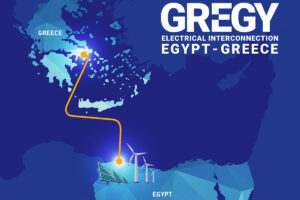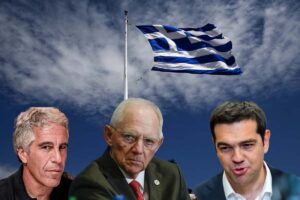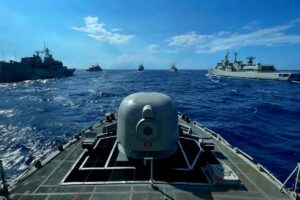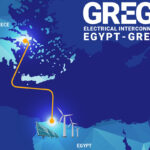The Erdogan regime’s maritime border agreement with Libya can only serve to ramp up regional tensions
Turkey has gone a step further in its East Mediterranean power play, signing a memorandum of understanding (MoU) with the internationally recognised government in Libya on their joint maritime border. On the face of it, the MoU places a vast swathe of the Eastern Mediterranean Sea into Turkish hands, including not just the waters off Cyprus but around some Greek islands as well.
The Ankara authorities already asserts the right to search for hydrocarbons in any spot that Turkey sees as within its continental shelf area; for several months, its drill ships have been operating inside Cyprus’ economic exclusion zone (EEZ), with a promise of more to come.
Predictably, the Cypriot and Greek governments led the chorus denouncing the Turkish-Libyan agreement, with other European countries and the US joining it. Turkey is in combative mood with seemingly little interest in compromise
Cyprus says the MOU has no validity, while Greece decries it a distortion of international law. Egypt also says the agreement is illegal, adding that talks with Greece on their joint maritime border will now be given high priority.
Uncompromising Ankara
Turkey rejects all the criticism. On the issue of Cypriot and Greek islands’ waters being swallowed up by the claimed maritime zone, the country’s foreign ministry contends that “islands cannot have a cut-off effect on the coastal projection of Turkey, the country with the longest continental coastline in the Eastern Mediterranean”. Because Cyprus has decided to search for hydrocarbons without considering the interests of Turkey or Turkish Cypriots (living in the northern part of the island, where Turkish forces have been deployed since 1974), the foreign ministry says its government has no choice but to unilaterally look after its own interests. “Through this agreement with Libya, the two countries have clearly manifested their intention not to allow any fait accomplis,” says a ministry spokesman.
And Turkey is in combative mood with seemingly little interest in compromise. A top priority of President Recep Tayyip Erdogan in 2020 “will be upholding Turkey’s rights in the Eastern Mediterranean”, a senior energy sector official in Ankara tells Petroleum Economist. “The president takes a personal interest in developing the energy sector and he is not going to let Cyprus just carry on as it pleases while ignoring Turkish Cypriot rights and our rights. And all Turks back him on this.” For now, there is no indication of the rising tension changing the plans of international oil companies
The Turkish government has “repeatedly invited all parties to negotiations for a consensus based on equity and remains ready for negotiations”, says the foreign ministry. But the agreement with Libya now “makes a diplomatic solution that much more difficult” in the view of Greek Cypriot energy analyst Charles Ellinas. “It is part of a concerted effort by Turkey to create a position from which to negotiate. But, unfortunately, Turkey’s approach to negotiations appears to be one of coercion and intimidation. Despite what it says, Turkey’s claims have no internationally recognised legal status,” says Ellinas.
IOCs press on
For now, there is no indication of the rising tension changing the plans of international oil companies (IOCs) operating in Cyprus’ EEZ. Cypriot energy minister Georgios Lakkotrypis told Petroleum Economist in late 2019 that, with strong EU support, Cyprus would go on “exercising our sovereign rights in both exploration and exploitation, despite Turkish provocation”. Major offshore drilling operations are planned in the coming months.
In early 2018, the Turkish navy prevented a drilling ship under contract to Italy’s Eni reaching its target area in Block 3 off Cyprus. Now, with Libya providing Turkey with an East Med ally—albeit at the moment a dysfunctional one—officials in Ankara believe that Erdogan may be ready to push his country’s claims even more forcefully than in the past. In which case, IOCs may have some tricky decisions to make.












